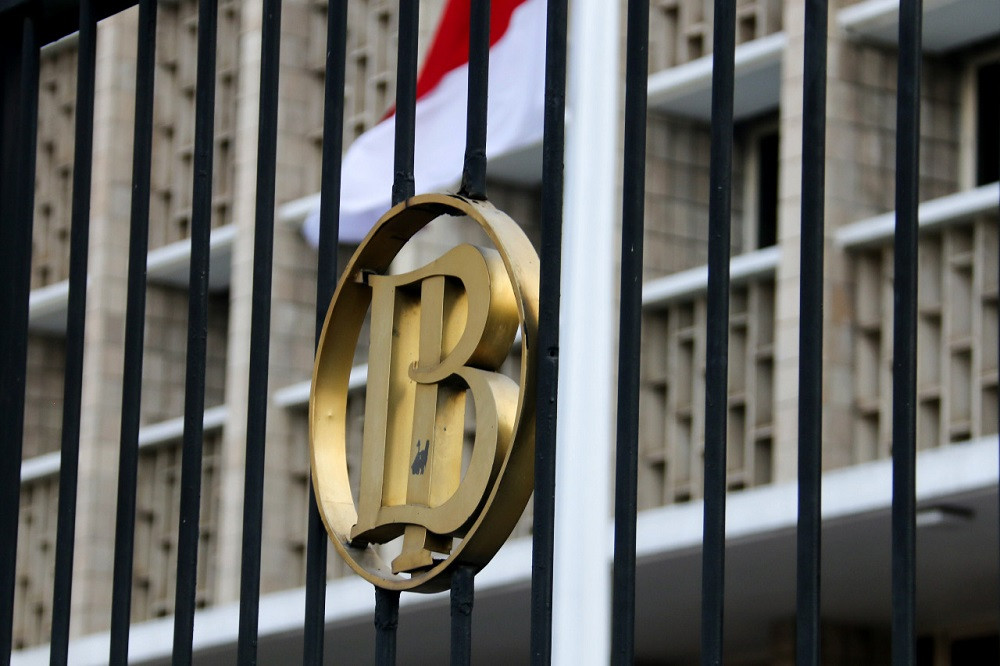Popular Reads
Top Results
Can't find what you're looking for?
View all search resultsPopular Reads
Top Results
Can't find what you're looking for?
View all search resultsBI to require natural resource exporters to convert forex earnings to rupiah
Change text size
Gift Premium Articles
to Anyone
B
ank Indonesia (BI) plans to require exporters of natural resources to convert their foreign exchange (forex) earnings into rupiah to stabilize the country’s currency, while it also continues to buy government bonds to support the economy amid the ongoing health crisis.
Exporters of natural resources that earned more than US$300 million from 2019 shipments will be required to convert their earnings to rupiah, BI Governor Perry Warjiyo said during a meeting with lawmakers on Monday, adding that the measure was aimed at shoring up the rupiah’s stability and bolstering Indonesia’s external stability.
“This is not capital control because we also need foreign funds, including portfolio investment and foreign direct investment,” Perry told House Commission XI overseeing financial affairs. “We will do this by considering the stability of the rupiah exchange rate.”
The effective date for the new regulations will depend on the stability of the rupiah, he said, adding that there would be a ceiling for the amount exporters kept in their bank accounts and anything above must be converted to rupiah.
Exporters of natural resources are already required to retain their earnings in a special account under the current regulations.
The rupiah appreciated 0.7 percent on Monday to Rp 14,670 per US dollar as of 3 p.m. Jakarta time and has lost 5.8 percent of its value throughout the year. To date, the rupiah has been one of the worst-performing Asian currencies in the third quarter.
The central bank’s governor reiterated his view that the rupiah remained “fundamentally undervalued” and would strengthen further to reflect its fundamentals, supported by low inflation, low current account deficit (CAD) and attractive domestic financial assets, among other reasons.
The CAD narrowed in the second quarter to $2.9 billion, down from 1.4 percent of gross domestic product (GDP) in the first quarter to 1.2 percent of GDP.
Meanwhile, the central bank has bought Rp 125.06 trillion worth of government bonds directly through auction and private placement, Perry went on to say, adding that this had increased the central bank’s ownership of government bonds to an accumulated Rp 536.67 trillion.
“BI will take quantity measures by providing liquidity to support economic recovery from the impact of the coronavirus pandemic, including by supporting the government to accelerate the absorption of the 2020 state budget,” Perry said, adding that the central bank would continue to take measures to stabilize the rupiah and strengthen monetary operations.
The central bank and the government have agreed on a Rp 574.59 trillion debt monetization scheme, with the central bank pledging to buy Rp 397.5 trillion in bonds and fully bear the debt costs. It has also pledged to remain as a standby buyer of government bonds in auction.
The central bank has cut its benchmark interest rate, the seven-day reverse repo rate, by 1 percent so far this year. Many economists expect BI to cut its policy rate at least one more time this year.
Permata Bank economist Josua Pardede said the central bank’s latest announcement, particularly the requirement for exporters of natural resources to convert their forex earnings into rupiah, had received a positive reception from investors, attributing the currency’s gains to the central bank’s latest move.
“This will create positive sentiment in the near-term as the move will boost dollar supply in the country,” Josua told The Jakarta Post during a phone interview. “The new policy means that there will not be any capital control, which is a good sign for the market, because not every exporter will be required to convert their earnings, only those that shipped $300 million in value.”










